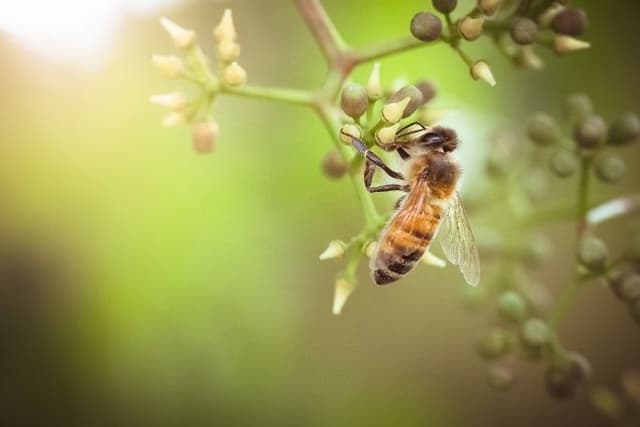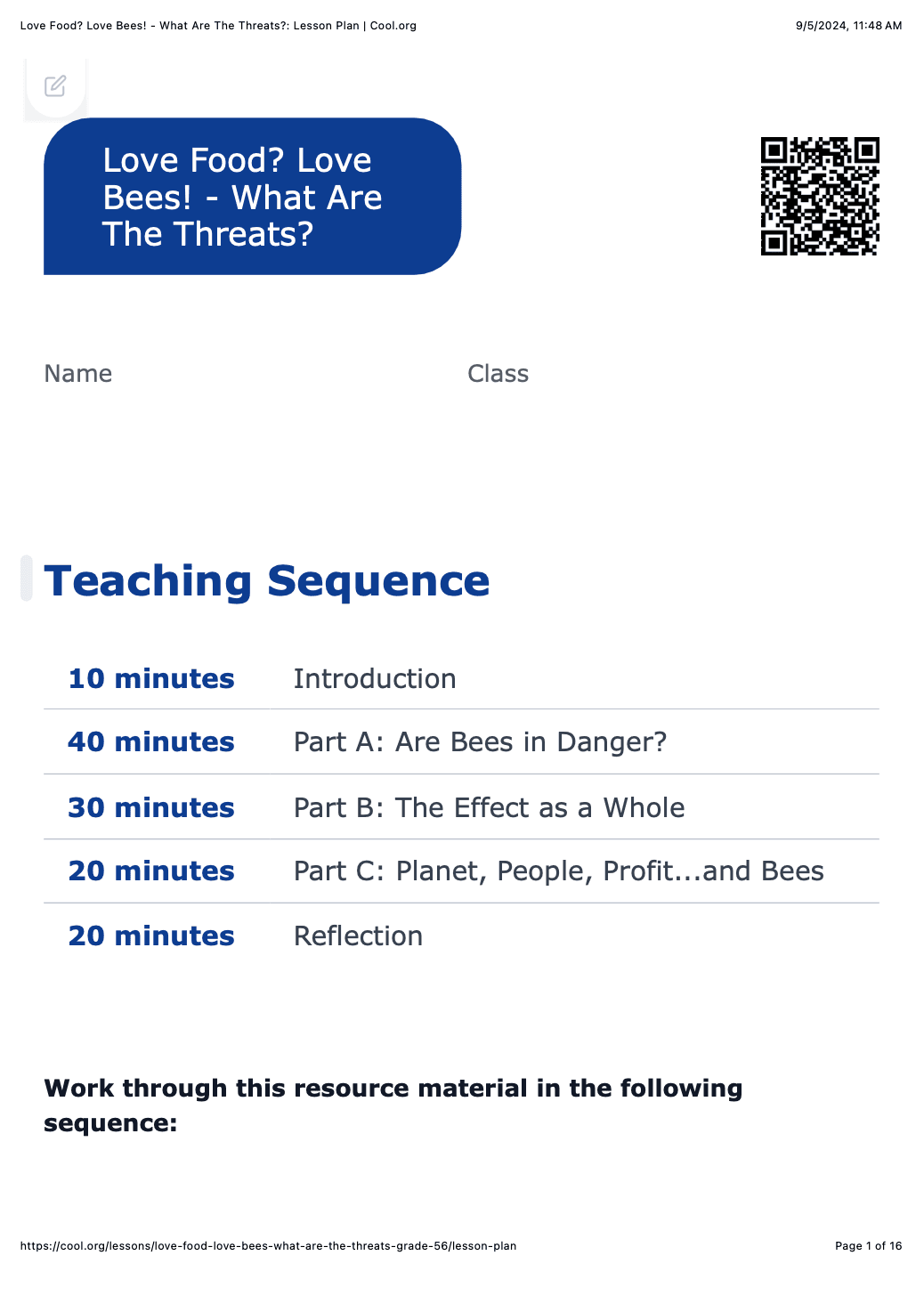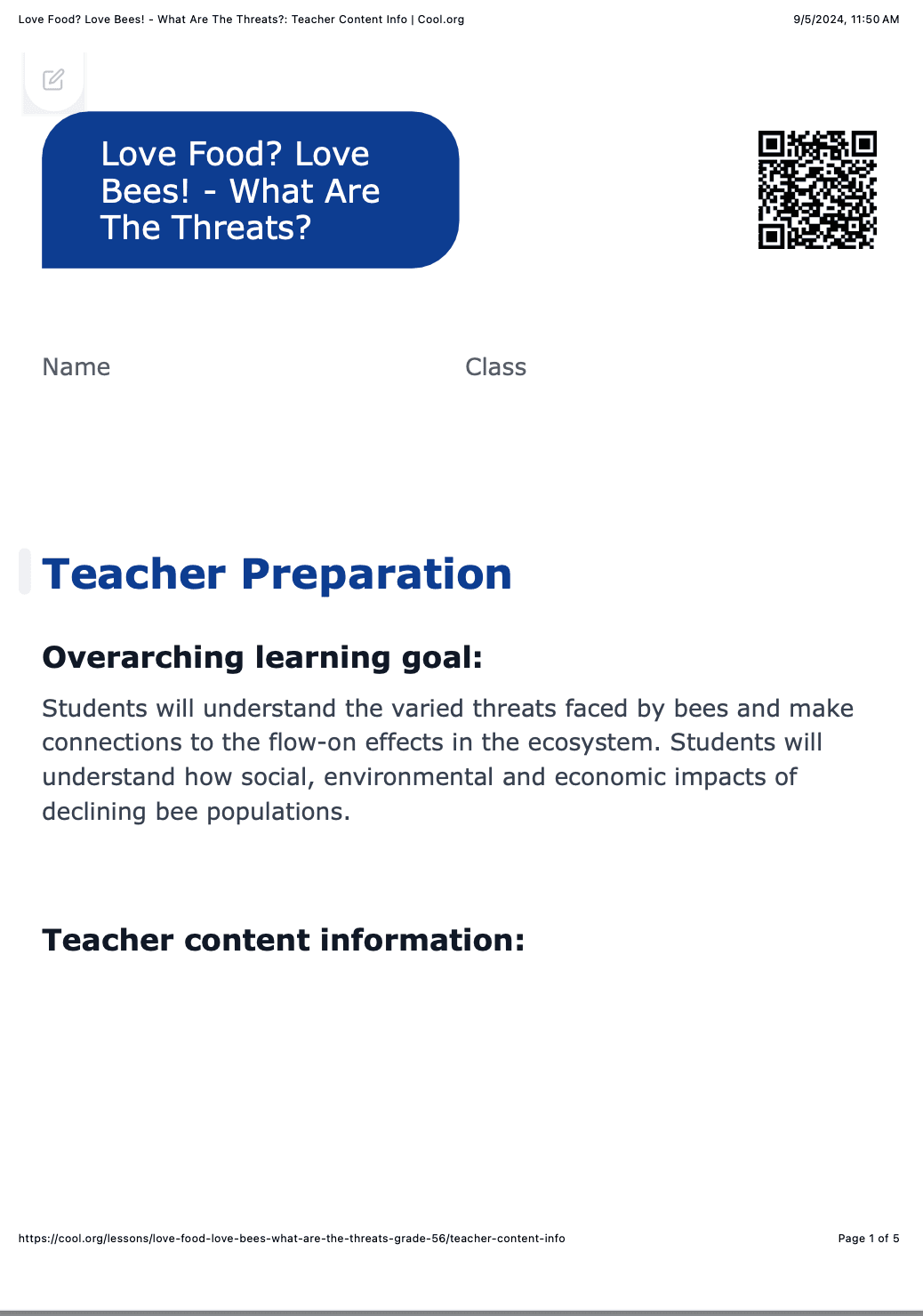
What Are The Threats?
Lesson7 of 10 in this unit
PrimaryYear 5 - 6EnglishMathematicsScienceHumanities and Social SciencesBusiness and EconomicsEnvironmentalBiodiversityConservationSustainability
Summary
Lesson guides and printables
Lesson Plan

Student Worksheet

Teacher Content Info

Bees Under Threat Factsheet
